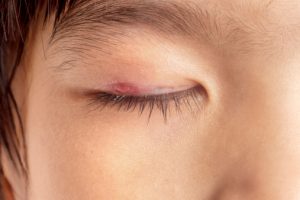On November 16, 2017, the Flushing Hospital Medical Center’s Smoking Cessation Team joined with the American Cancer Society and participated in The Great American Smokeout. The Smoking Cessation Team hosted an informational table in the hospital’s lobby.
The Great American Smokeout is designed for you to have a chance for you to make a plan to quit smoking. Did you know that by quitting for even one day, you will be taking an important step toward a healthier life and can reduce your risk of getting Cancer? Well, you can!
Tobacco is the single greatest cause of multiple diseases and premature deaths in the USA today. It kills more Americans each year than alcohol, crack, heroin, homicide, suicide, car accidents, fire and AIDS combined. There are an estimated 480,000 deaths in the United States annually that are due to tobacco use. It is the only legal consumer product that is lethal when used exactly as recommended by the manufacturer.
Smoking cigarettes affects many aspects of health. Tobacco smoke contains about 7000 chemicals, including low concentrations of such strong poisons as ammonia, cyanide, arsenic and formaldehyde. It also contains 69 carcinogens – substances that are known to cause cancers in humans. Direct association has been established between smoking and cancers of the lung, mouth, nose, throat, larynx, esophagus, colon and rectum, stomach, pancreas, cervix, bladder, kidney and blood.
In the United States, Illnesses caused by smoking cost more than 300 billion dollars per year in direct medical care and lost productivity. Smokers pay twice as much for life insurance and will die on average of 13-14 years earlier than non-smokers. It costs tobacco companies approximately 5 cents to produce a pack of cigarettes.
Many lung conditions are either caused or aggravated by cigarette smoke. It irritates bronchial airways and stimulates mucous production leading eventually to decreased elasticity and functional failure. Patients suffering from COPD, Asthma, Chronic Bronchitis or Emphysema have a much higher risk of dying when repeatedly exposed to smoke.
Smokers are also at greater risk for cardiovascular disease. Smoking damages blood vessels making them stiff and narrow, obstructing blood flow which results with elevated blood pressure, heart attacks, strokes, kidney failure or chronic skin changes.
Pregnant women exposed to tobacco smoke have increased risk of complications like miscarriage, premature birth, and brain and lung damage in developing baby. Sudden infant death syndrome is three times more likely if mother smoked during pregnancy.
Secondhand smoke is the smoke exhaled by smokers or given off by a burning cigarette or pipe. Inhaling secondhand smoke is as hazardous as smoking a cigarette. There is no safe level for secondhand smoke exposure established. People can inhale it at work, homes, cars or public spaces and have all the complications mentioned above.
Smoking tobacco is an addiction similar to heroin and cocaine. It can be successfully treated but the majority of cases require three or more attempts. Quitting smoking offers a chance of feeling better and living longer. Studies have shown that five, common sense steps, provide the best chance for quitting smoking for good:
- Get ready: set a quit date and throw out all cigarettes and ashtrays from your home.
- Get support: tell your family, friends and doctor about quitting plans; search the internet for advice.
- Learn new behaviors: distract yourself from the urge to smoke; exercise or go for a walk.
- Get medication: combining medication like nicotine patches or Zyban with behavioral adaptation and family support quadruples your chances of success.
- Be prepared for relapse and difficult situations– most people try to quit a few times before succeeding.
If you would like to learn more about quitting smoking call the Flushing Hospital Medical Center’s Smoking Cessation Team at 718-670-3146.
All content of this newsletter is intended for general information purposes only and is not intended or implied to be a substitute for professional medical advice, diagnosis or treatment. Please consult a medical professional before adopting any of the suggestions on this page. You must never disregard professional medical advice or delay seeking medical treatment based upon any content of this newsletter. PROMPTLY CONSULT YOUR PHYSICIAN OR CALL 911 IF YOU BELIEVE YOU HAVE A MEDICAL EMERGENCY.
 According to La Leche League International, when combined with maintaining a healthy diet and exercise, breastfeeding can help most moms to lose weight after childbirth.
According to La Leche League International, when combined with maintaining a healthy diet and exercise, breastfeeding can help most moms to lose weight after childbirth.

